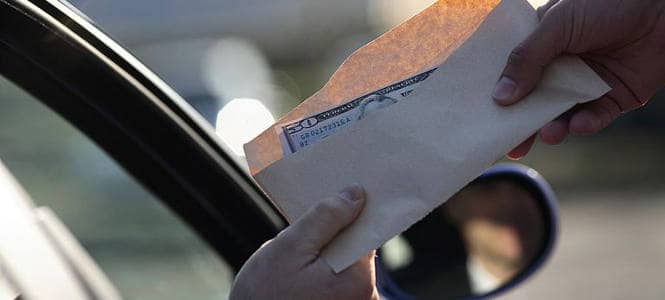

California Penal Code 182(a) PC describes conspiracy as two or more people planning to commit any crime. In order to be convicted of Conspiracy in California, the prosecutor must show:
There are many variables that can affect the sentencing in a conspiracy Penal Code 182(a) PC case. If you conspire to commit any crime against a government official (such as the President or Vice President of the United States, the Governor of any state or territory, any United States justice or judge, or the secretary of any of the executive departments of the United States) you will be charged with a felony and can be sentenced to jail for five, seven or nine years.
If you are charged with conspiracy Penal Code 182(a) to commit another felony, you can be sentenced in the same way as the felony crime. For instance, if you are found guilty of conspiracy Penal Code 182(a) to commit murder, the sentence will be in accordance with the punishment for murder in the first degree. This is true even if the murder never took place. If there are degrees to the charge which can affect the sentence, it will be up to the jury to decide the degree of the felony you conspired to commit.
If you are convicted of conspiracy Penal Code 182(a) to commit two or more felonies, the penalties will be the same as the punishment for whichever felony carries the longer maximum term.
If you are convicted of conspiracy Penal Code 182(a) to commit fraud you can be sentenced to up to one year in jail, and/or fined up to $10,000.
If you are convicted of conspiracy Penal Code 182(a) to commit identity theft (Penal Code 530.5) the court may decide to fine you up to $25,000. Your case is considered a “wobbler” meaning you can be charged with either a misdemeanor or a felony, depending on the facts of your case.
If you conspired to commit a misdemeanor, your case is also considered a wobbler, and therefore you can be charged with a conspiracy, Penal Code 182(a) felony depending on the circumstances.
It’s important to remember that you can be charged with conspiracy Penal Code 182(a) PC even if the crime you were planning on committing never occurred.
In order to come up with the best defense, you must first understand what the prosecutor will be trying to prove. The prosecutor must prove that:
1) You intended to agree, and did agree with one or more persons to commit a crime.
The prosecutor doesn’t have to prove that you have ever met the other person, or that the plan to commit the crime was detailed. In fact, if it can be reasonably inferred that you and at least one other person acted with a common purpose to commit a crime, then the prosecutor has satisfied this requirement.
2) An “overt act” was committed to help accomplish the conspiracy, Penal Code 182(a) crime.
An overt act is any action that would actually make it possible to commit the agreed upon crime. This act does not have to be criminal, but must be something more than the original agreement to commit a crime. Simply making a plan isn’t a crime, but once any action to complete the plan is taken then it becomes a conspiracy Penal Code 182(a). Keep in mind that any of the co-conspirators could have committed this act.

The first thing your criminal defense attorney will try to prove is that you did not agree to commit the conspiracy, Penal Code 182(a) crime. Another tactic is to prove that you did not intend to commit the conspiracy, Penal Code 182(a) crime, or have another person commit the crime. If you were not aware that you were breaking any laws, your attorney may be able to use that in your defense, as you did not intend to break the law- a requirement for a conspiracy Penal Code 182(a) PC charge.
In order to help your defense, your attorney can also try to prove that no overt act took place in order to help accomplish the crime. In order to qualify as an overt act, the action must take place after the plan to commit the crime was made, but before the actual crime took place, or would have taken place. Remember that you don’t have to be the one who committed the overt act, or even be aware that the act took place, in order to be convicted of conspiracy Penal Code 182(a) to commit a crime.
If your defense attorney can prove one of these things, then you will not be convicted of conspiracy Penal Code 182(a) to commit a crime.
If you are facing PC 182(a), Conspiracy charges, it’s important to discuss your situation with an effective Criminal Defense Attorney.
Call LAW MART for a FREE Case Review: 310-894-6440

Copyright © 2024 law – Powered by AmelCS